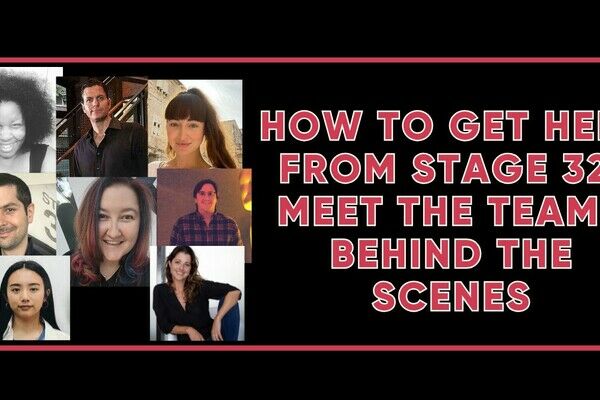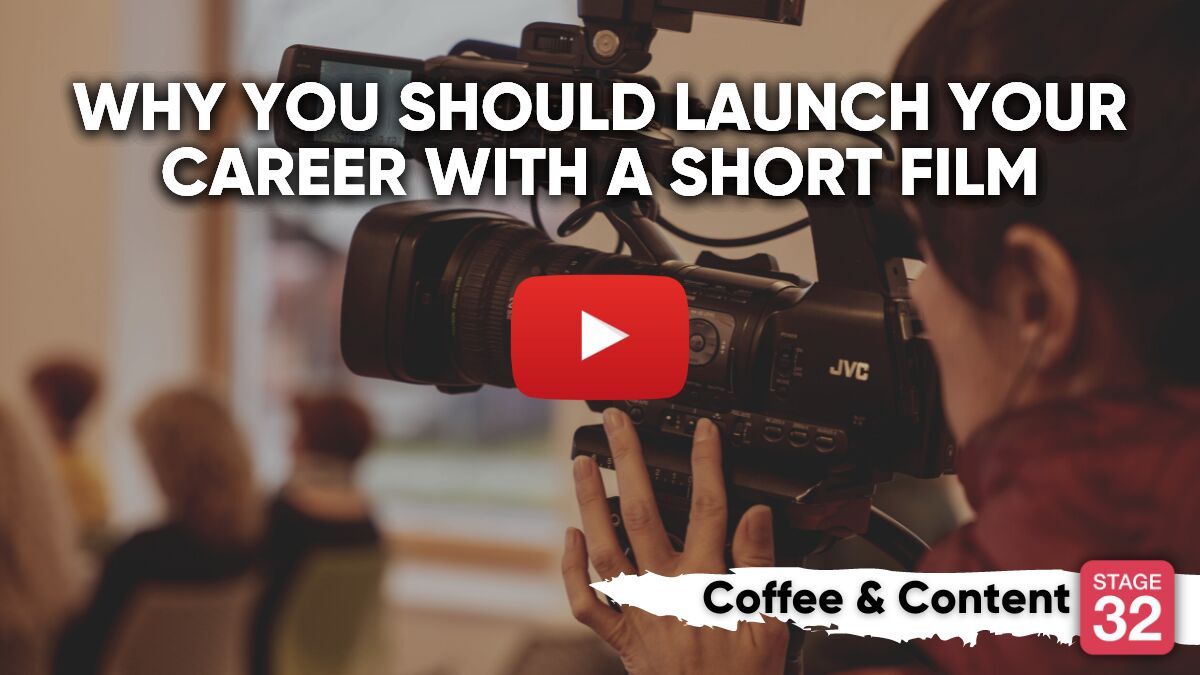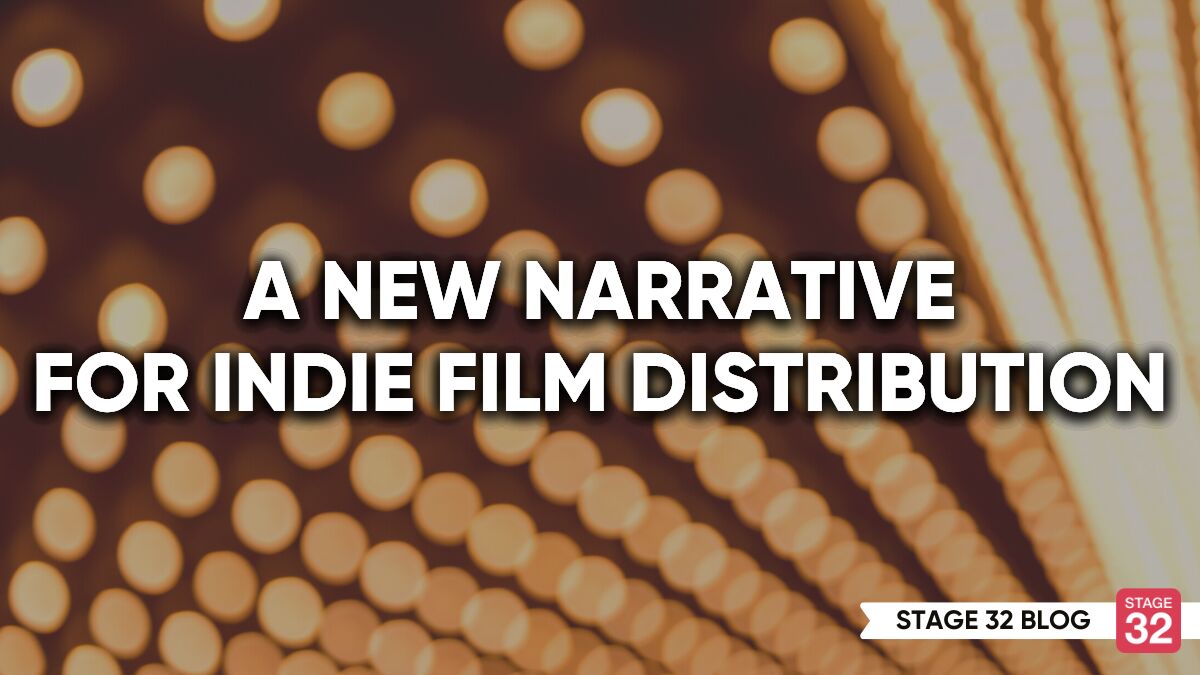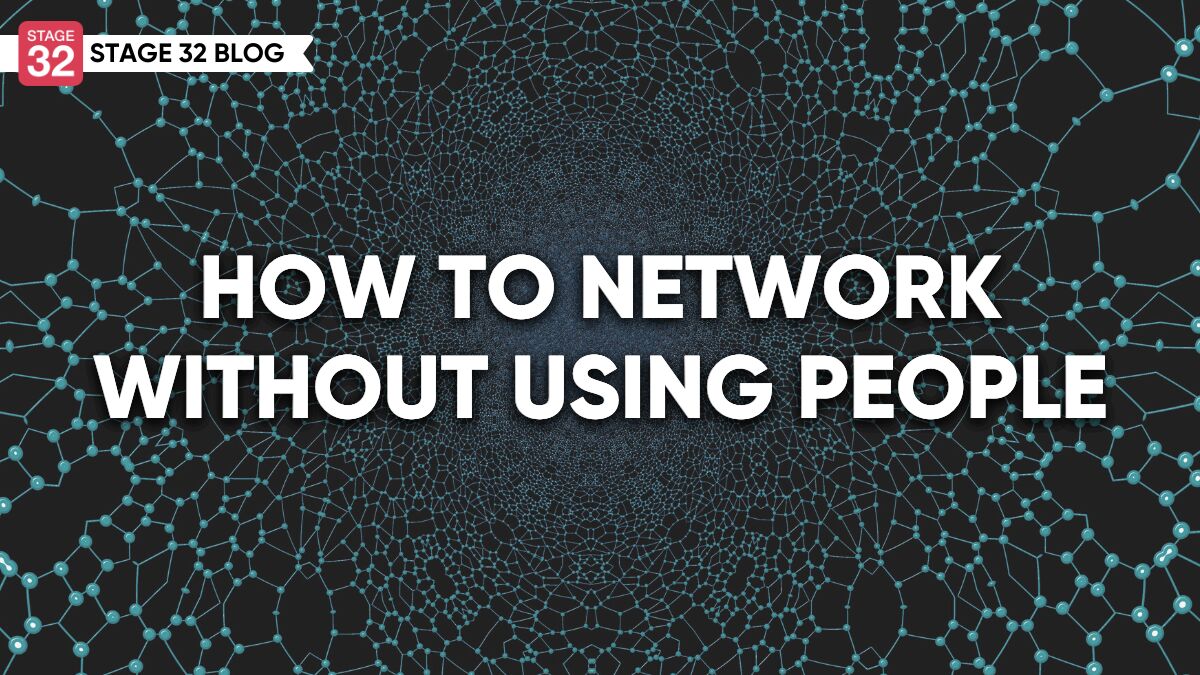How To Network Without Using People
Showbusiness is and has always been a collaborative effort. Even a one-person show needs an audience to be complete, so there’s nobody in this industry - no matter how much success or power they may have - who doesn’t need support when it comes to realizing their creative and financial goals. When we’ve been undersupported in our work and our lives, it’s easy to look at the careers of more established filmmakers and creators and imagine that there comes a point where a person’s privilege empowers them to simply greenlight any project they care to work on. In reality, nobody ever really “makes it” to that degree.
Even the most celebrated filmmaker is going to need to deal with the conflicts of interest posed by those seeking to finance their films, the creative goals of the people they want to work with, or even just the assumptions that executives are making about the marketplace. Everyone’s got a project they desperately want to invest their time in, which they believe would make a huge difference in the world around them, which nobody else seems to see the value in.
Having that kind of ambition and imagination is what drives us to master our craft and build a strong community in the first place. Even the most visionary filmmaker feels stuck in their career, and even the most privileged filmmaker needs other people to invest in the project they believe will take their work to the next level. Everybody needs money or new relationships, or some other resource they don’t have access to… and the people around us always seem to just want to share their ideas and tell us how to do our jobs.
Most creative professionals have too many ideas already, but the people in our lives who admire our craft don’t see that. What they see is that we’re working on our goals and that we’re not making as much progress as we’d like… and because sharing ideas is risk-free and soothing to the ego, that’s what they offer us. Success won’t change that fact.
Ever.

BE NECESSARY
So, how do we get people to give us actual, useful resources? How do we get them to actively work past the dopamine hit that comes with telling us how to do our jobs, and do something to empower the projects and efforts by which we hope to define our legacy? Simple. Be necessary.
When helping us achieve our goals serves to advance the goals of those around us, they stand a much greater chance of putting themselves out there and assuming some risk on our behalf. Strength in our community comes from making ourselves necessary to those around us to the degree that those people actually need our success to achieve goals of their own.
Where this need comes from will vary from person to person. Maybe it’s psychological, and they’re invested in our leadership, and they need us to achieve our goals because it gives them confidence. Maybe it’s because they know our goals will benefit someone else in the community, and they need the social authority that comes from bringing us together. Maybe it’s because they’re about to ask us for help and support, and they want us to have some incentive to give it. Possibly, it’s because they have a simple appreciation for the fact that our success is consistently making the community stronger and they want to see more of that.
My point is that for the purposes of this discussion, it doesn’t matter what motivates someone to help us out. When that help comes along, we can evaluate the risks and rewards of that resource accordingly. In a larger sense, it’s our necessity to the community that incentivizes people to invest in us.

UNCONDITIONAL SUPPORT
How do we cultivate an image of being necessary to the community? This is where most people in Hollywood screw things up, and it’s where we all need to learn to set our egos aside. Most networkers are focused on investing just enough effort in the people around them to create an impression of helpfulness, in order to establish a favorable environment for their own pitch and their own agenda. No. What makes us necessary is our ability to help other people unconditionally, on their own terms.
What does this mean? What I’m saying, point blank, is that we need to be reaching out to other people in our community, finding out what help they need to achieve their own goals on their own terms, and then providing that help with no strings attached.
We need to volunteer, and we need to do so in the most meaningful and profound ways we are capable of. So we’re clear, some of the people we serve in this way aren’t going to bother thanking us - let alone offer to help us in return. Certainly, many of these people won’t have the power or privilege to turn around and help us with our own problems. All of these facts need to be accepted in advance, as conditions of the support we are offering.
Ok, but… if we’re just giving away help to anyone who needs it, isn’t that going to eat into our time and energy? Yeah. Of course, it will. When it comes to managing that time and energy effectively, I have two guiding principles to offer:

INVEST IN THE FUTURE
Specifically, invest in the future you want to see. If you believe that a person or project is especially good for the industry, show up for them. Help them succeed. Maybe they’ll remember you were there and maybe not, but at least there’s a greater good to be achieved through your efforts.
What’s more, any time you spend bringing resources or help to a person or production which you believe is bringing something special and important to the industry is inevitably going to get you surrounded by people who value the same things you do.
Even if the person you’re helping isn’t going to return the favor, you’re a lot more likely to meet people who will appreciate and respect you when you’re working on a project you believe in. Presumably, you’re not the only person on that project who feels that way!
Even if the show turns out to be a dumpster fire, and even if the people turn out to be abusive, we still showed up for something we thought was going to be of greater service to the community. So long as we always protect our own boundaries when it comes to ethics and safety, that’s a mistake we can live with. Provided we learn from those mistakes, it’s also a risk we can afford to take again, down the road, with someone else.

GIVE WHAT YOU CAN
Know your boundaries, know your resources, and don’t overextend yourself. If someone needs more than you can give, let them know what you can actually do. If it’s going to make a difference, then by all means do it. Just don’t offer anybody more than that.
Los Angeles is a culture defined by desperation, and so is the film industry. Almost all of us have been talked into overextending ourselves, at some point in our careers. What’s more, most of us have lived through times of extraordinary need. Most of us have tried talking other people into overextending themselves if we’re being painfully honest.
Learn to understand, compartmentalize, divide, and conquer your needs. Keep your own desperation out of your commitments and negotiations. Deal with those problems in other ways. Obviously, this is an idea that demands a lot of emotional intelligence and a lot of discipline… and believe me, it’s necessary for your success. All of us should be in therapy. Even if we can’t afford therapy, we still need to do that work.
Get yourself in balance, so the help you volunteer can be sustainable. Give people what they need to accomplish their goals, on their terms, according to their ideas about how things should work. Only commit to what you can afford to give, and remember not to overextend yourself in the moment. Unless you’re making an explicit agreement to sell goods or services, don’t ask for anything in return. Just help people. Remember, everybody needs it.

Every issue I raise here on Stage 32 is something I’ve wound up discussing, again and again, with people in my community and we see it every day in the lounges. So, during this month's Introduce Yourself Weekend, which is happening right now, I challenge you to reach out and see how you support each other. Over time, you'll see the efforts you make will not only help other people achieve their goals but also help you achieve your own.
Let's hear your thoughts in the comments below!
Got an idea for a post? Or have you collaborated with Stage 32 members to create a project? We'd love to hear about it. Email Emily at blog@stage32.com and let's get your post published!
Please help support your fellow Stage 32ers by sharing this on social. Check out the social media buttons at the top to share on Instagram @stage32 Twitter @stage32 Facebook @stage32 and LinkedIn @stage-32
| Coffee & Content: Why You Should Launch Your Career With A Short Film |
| A New Narrative For Indie Film Distribution |
Search Stage 32 Blog
There are now 4043 blog posts for you to enjoy. Search them all by tags below.
Acting, Advice, Cinematography, Coffee & Content, Composing, Contests, Distribution, Featured, Filmmaking, Financing, Inspirational, Networking, Producing, Screenwriting, Success Stories, Tips, Trending,Relevant Tags
Recommended Articles

Stage 32 + DramaBox Join Forces to Launch World's First Vertical Drama Incubator
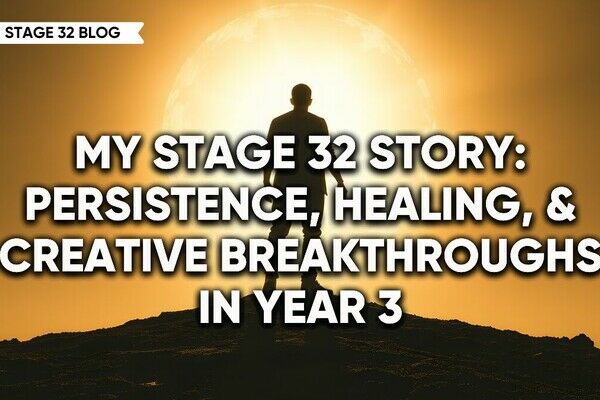
My Stage 32 Story: Persistence, Healing, & Creative Breakthroughs in Year 3

Insider Intel: Packaging your Project- The Chicken or the Egg Dilemma

7 Life Hacks For Creatives

Stage 32 Featured at the 43rd Torino Film Festival!

A Practical Guide for Actors: Tips & Advice Every Performer Should Know

4 Reasons To Have Audio Description On Your Film

Coffee & Content: Low Stakes Stories, High Stakes Decisions

Green Lights and Grey Areas: Expanding Creative Collaboration in Publishing
